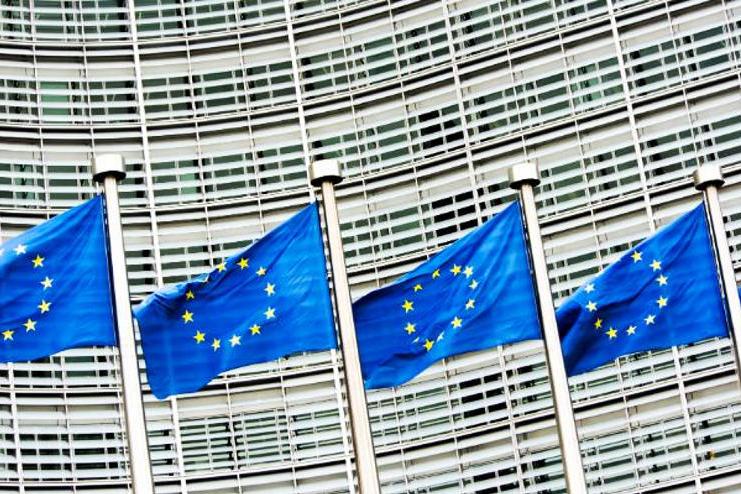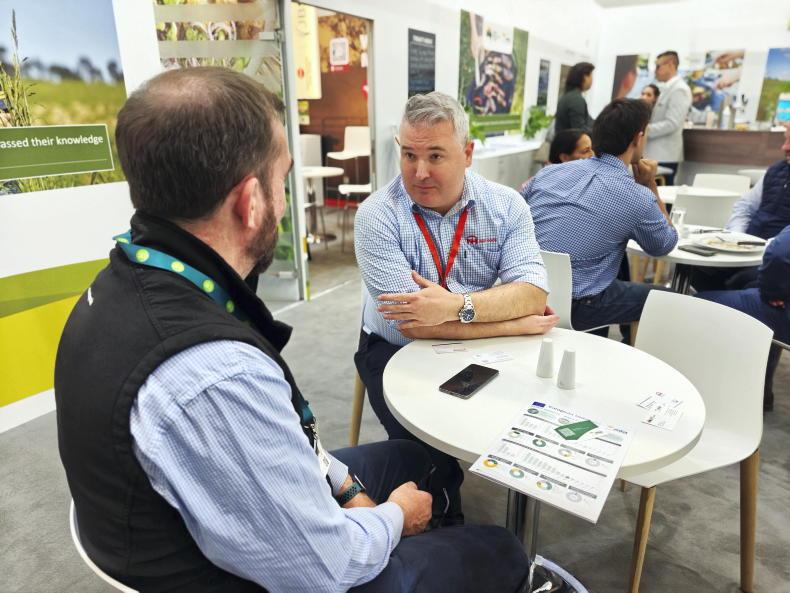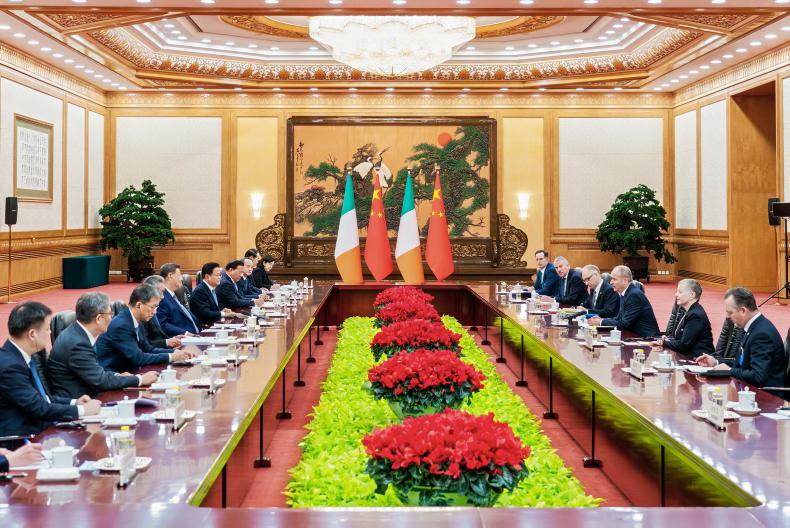As Phil Hogan clears his desk in the Berlaymont, the Irish Government will now nominate a replacement commissioner. The nominee will require the approval of the European Parliament and, when confirmed, they will be allocated a portfolio in the Commission.
It will be a huge challenge for the Irish Government to retain the trade portfolio as the president may want to have a replacement commissioner in place quickly with the Brexit negotiations reaching a critical point.
Brexit
The future trading relationship with the UK is the most immediate issue facing a new Irish commissioner.
At this point there appears to be little common ground for a meaningful deal, but given the exposure of the Irish agricultural sector to the UK market, it is vital that a way is found to maintain access on as close to present terms as is possible.
There is also the issue of making the Irish protocol, which is designed to maintain seamless trade across the border on the island of Ireland, work . An Irish Commissioner for Trade would have an appreciation of the nuances involved in this unlikely to be matched by any other person from the EU 27.
Mercosur
The outgoing commissioner was an advocate of free trade and while in his previous agriculture portfolio was instrumental in getting a number of deals closed.
The most threatening of these for Irish farmers was the deal with Mercosur giving access for up to 99,000t of South American beef to the EU market. This was fiercely opposed by Irish farmers and Hogan defended it by saying that the agreement provided for a €1bn compensation fund for farmers negatively affected, and a commitment for replanting the Amazon rainforest at a rate of 1m hectares per year for the next decade.
When defending the Mercosur agreement, Hogan made a great deal out of having secured a safeguard clause whereby the EU could switch off South American imports if the market was particularly depressed. The Mercosur deal has not been ratified yet, but if it is, it is important that these protections are enforced.
Australia / New Zealand
The EU is at an advanced stage of trade negotiations with Australia and New Zealand and both countries are known to be unhappy with the level of access to EU markets being offered for their agricultural produce.
Having agreed to Mercosur, there is no more headroom for the EU to negotiate a trade deal on the basis of access to the EU for agricultural produce. The UK government, which also has ambitions of quickly concluding a separate trade deal with both countries, has identified that it will be importing 80% more from Australia and 40% more from New Zealand, made up primarily of beef and sheepmeat. This is a further reason, from an Irish perspective, as to why there is no more capacity in the EU 27 market to a absorb further imports of either beef or sheepmeat.
Read more
Hogan resigns as Commissioner for Trade
Phil Hogan resigns: 'I did not break any law'
As Phil Hogan clears his desk in the Berlaymont, the Irish Government will now nominate a replacement commissioner. The nominee will require the approval of the European Parliament and, when confirmed, they will be allocated a portfolio in the Commission.
It will be a huge challenge for the Irish Government to retain the trade portfolio as the president may want to have a replacement commissioner in place quickly with the Brexit negotiations reaching a critical point.
Brexit
The future trading relationship with the UK is the most immediate issue facing a new Irish commissioner.
At this point there appears to be little common ground for a meaningful deal, but given the exposure of the Irish agricultural sector to the UK market, it is vital that a way is found to maintain access on as close to present terms as is possible.
There is also the issue of making the Irish protocol, which is designed to maintain seamless trade across the border on the island of Ireland, work . An Irish Commissioner for Trade would have an appreciation of the nuances involved in this unlikely to be matched by any other person from the EU 27.
Mercosur
The outgoing commissioner was an advocate of free trade and while in his previous agriculture portfolio was instrumental in getting a number of deals closed.
The most threatening of these for Irish farmers was the deal with Mercosur giving access for up to 99,000t of South American beef to the EU market. This was fiercely opposed by Irish farmers and Hogan defended it by saying that the agreement provided for a €1bn compensation fund for farmers negatively affected, and a commitment for replanting the Amazon rainforest at a rate of 1m hectares per year for the next decade.
When defending the Mercosur agreement, Hogan made a great deal out of having secured a safeguard clause whereby the EU could switch off South American imports if the market was particularly depressed. The Mercosur deal has not been ratified yet, but if it is, it is important that these protections are enforced.
Australia / New Zealand
The EU is at an advanced stage of trade negotiations with Australia and New Zealand and both countries are known to be unhappy with the level of access to EU markets being offered for their agricultural produce.
Having agreed to Mercosur, there is no more headroom for the EU to negotiate a trade deal on the basis of access to the EU for agricultural produce. The UK government, which also has ambitions of quickly concluding a separate trade deal with both countries, has identified that it will be importing 80% more from Australia and 40% more from New Zealand, made up primarily of beef and sheepmeat. This is a further reason, from an Irish perspective, as to why there is no more capacity in the EU 27 market to a absorb further imports of either beef or sheepmeat.
Read more
Hogan resigns as Commissioner for Trade
Phil Hogan resigns: 'I did not break any law'










SHARING OPTIONS